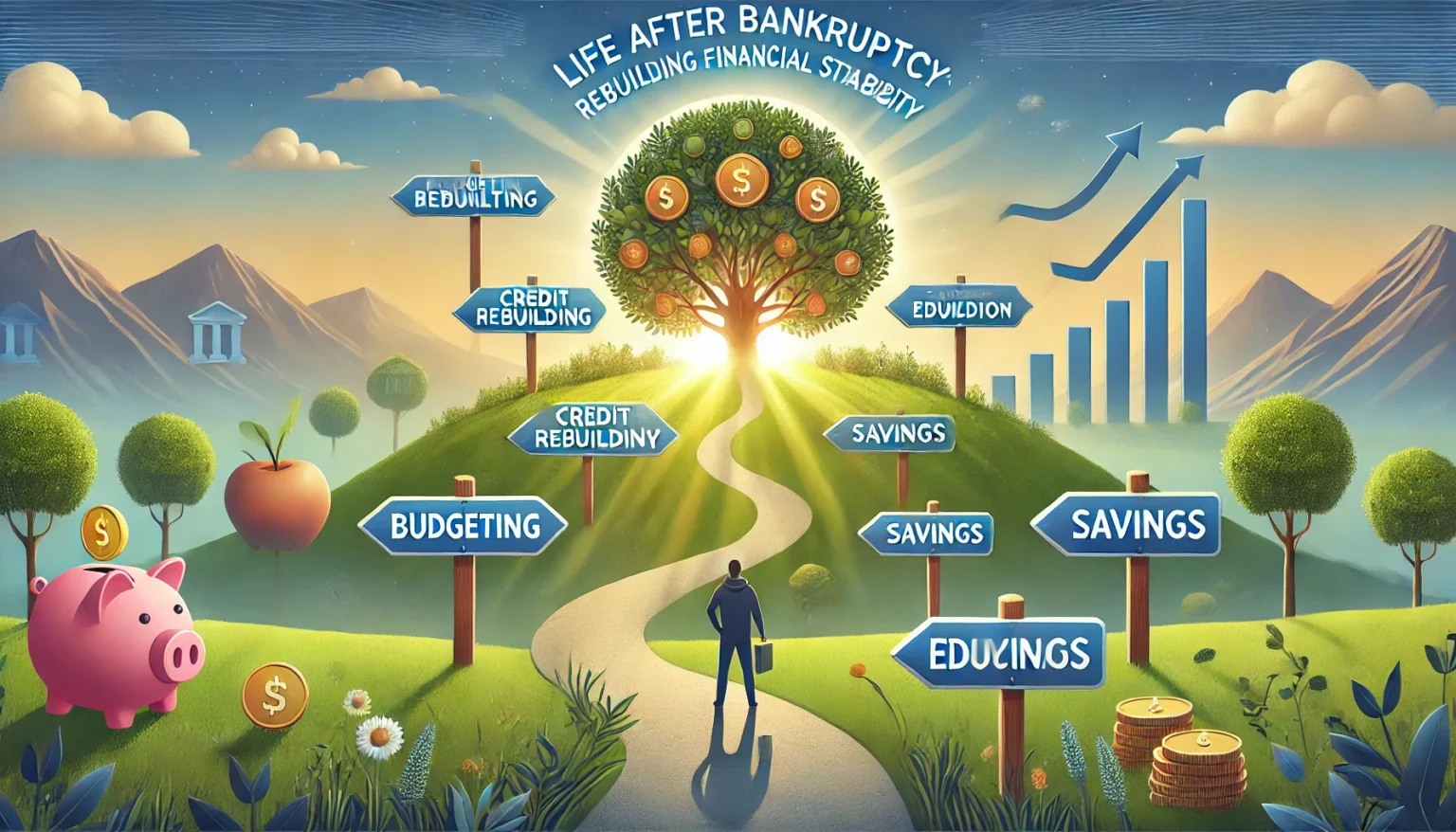Filing for bankruptcy can feel like a major setback, but it is also an opportunity for a fresh financial start. While bankruptcy affects your credit and finances in the short term, rebuilding your financial stability is achievable with careful planning, discipline, and a proactive approach. Here’s a comprehensive guide to regaining control of your finances after bankruptcy.
Understand Your Bankruptcy Outcome
After your bankruptcy case is closed:
- Chapter 7: Most unsecured debts are discharged, meaning you are no longer obligated to pay them. However, some debts, like student loans, child support, and certain taxes, remain.
- Chapter 13: You’ll continue making payments according to your court-approved repayment plan, typically over 3–5 years.
Understanding the specifics of your bankruptcy outcome ensures you know what debts were discharged and what financial responsibilities remain.
Create a Realistic Budget
A well-structured budget is essential for managing your finances post-bankruptcy. Start by:
- Tracking Income and Expenses: Document all sources of income and categorize your expenses (e.g., housing, utilities, groceries).
- Prioritizing Essential Costs: Focus on necessities like rent, utilities, and food while avoiding unnecessary spending.
- Setting Financial Goals: Allocate funds for savings, emergency funds, and debt repayment, if applicable.
This procedure can be made simpler and you can stay on track by using budgeting applications or tools.
Build an Emergency Fund
Bankruptcy often occurs due to unexpected financial crises, such as job loss or medical expenses. To avoid falling into the same situation, start building an emergency fund:
- Start Small: Even saving $500–$1,000 can provide a safety net for minor emergencies.
- Automate Savings: Establish recurring deposits into a specific savings account.
- Increase Gradually: Aim to save three to six months’ worth of living expenses over time.
Rebuild Your Credit Score
Although bankruptcy impacts your credit, it’s possible to rebuild it with time and effort:
Review Your Credit Report
- Look for mistakes, including cancelled debts that are still shown as active.
- Dispute inaccuracies with the credit bureaus to ensure your report is accurate.
Use Secured Credit Cards
- Secured credit cards require a deposit and notify credit bureaus of any activity. Apply for one.
- Use it responsibly by keeping your utilization low and paying the balance in full each month.
Make On-Time Payments
- Pay all bills (credit cards, utilities, rent) on time to establish a positive payment history.
Avoid New Debt
- Limit new credit applications and focus on managing existing obligations.
Educate Yourself About Personal Finance
Gaining financial knowledge is key to avoiding future financial difficulties. Consider:
- Books and Courses: Explore resources on budgeting, investing, and debt management.
- Workshops and Webinars: Attend free or low-cost financial education sessions.
- Financial Advisors: For individualised guidance, speak with a professional financial planner.
Gradually Rebuild Financial Relationships
Bankruptcy can affect your relationships with lenders, landlords, and even employers. To rebuild trust:
- Lenders: Demonstrate financial responsibility by maintaining a good payment history with credit cards or small loans.
- Landlords: Provide proof of steady income and references when seeking new housing.
- Employers: Be honest about your financial history if asked, emphasizing the steps you’ve taken to recover.
Focus on Long-Term Goals
Bankruptcy is a temporary setback, and focusing on long-term financial goals can help you move forward. Examples include:
- Homeownership: Save for a down payment and rebuild your credit to qualify for a mortgage.
- Retirement Savings: Contribute to employer-sponsored retirement plans or IRAs.
- Education or Career Advancement: Invest in skills or education that can increase your earning potential.
What to Avoid After Bankruptcy
- Reckless Spending: Avoid falling back into old habits that led to financial difficulties.
- Cosigning Loans: Be cautious about cosigning loans for others, as you’ll be held responsible if they default.
- Ignoring a Budget: Consistently tracking your finances is essential for long-term stability.
Emotional and Psychological Recovery
Bankruptcy can take a toll on your mental health. It’s important to:
- Seek Support: Talk to friends, family, or a therapist about your experience.
- Stay Positive: Focus on the opportunity for a fresh start rather than dwelling on past mistakes.
- Celebrate Progress: Acknowledge milestones, such as paying off debts or improving your credit score.
Conclusion
Life after bankruptcy is about rebuilding and creating a stronger financial foundation. By budgeting wisely, saving for emergencies, and making responsible financial decisions, you can recover from bankruptcy and achieve long-term stability. With time and effort, bankruptcy can be a turning point that leads to financial freedom and security.
Article Recommendations
Understanding Bankruptcy: Types and Eligibility
Understanding the Divorce Process: A Step-by-Step Guide
Worcester Mesothelioma Lawyer Vimeo: A Reliable Tool for Locating Top Lawyers in Massachusetts
Elk Grove Mesothelioma Legal Question: Common Myths and Facts About Asbestos Lawsuits
Wisconsin Mesothelioma Lawyer Vimeo: Connecting with Top Attorneys Through Informative Videos













